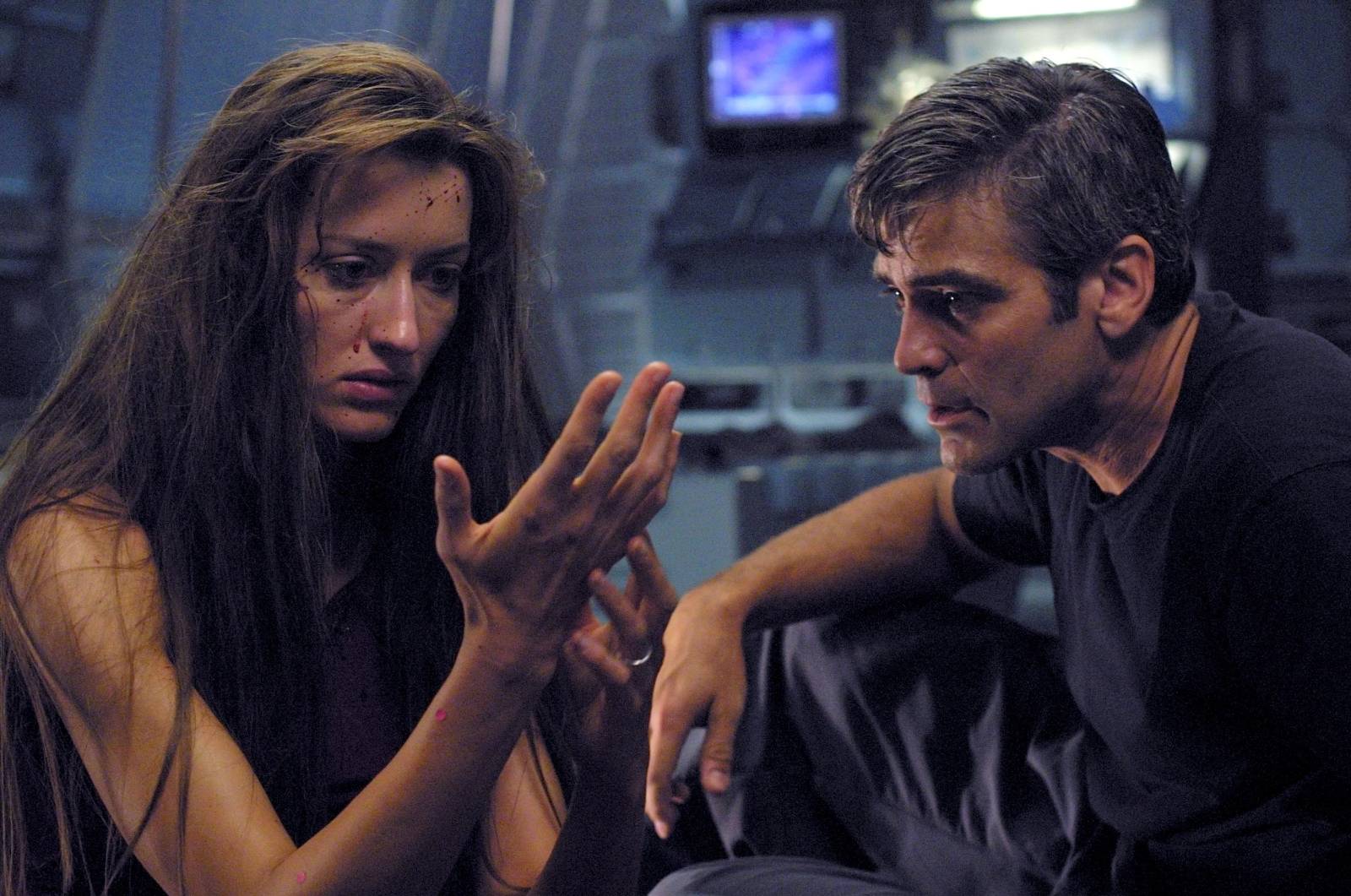Welcome to the return of Intermission, a spin-off podcast from The Film Stage Show. Led by yours truly, Michael Snydel, I invite a guest to discuss an arthouse, international, or experimental film of their choice.
For the fifteenth episode, I talked to The Film Stage co-founder/The B-Side co-host Dan Mecca about the ever-prolific Steven Soderbergh’s 2002 reimagining of Polish author Stanisław Lem’s seminal 1961 science fiction novel, Solaris.
Coming off a disparate and largely consistent run of projects (including most recently, the stubbornly low-key backstage musical/relationship drama, Magic Mike’s Last Dance), Soderbergh was and remains an unpredictable filmmaker who’s as likely to knock out a four-quadrant-blockbuster as an obtusely rendered conspiracy thriller throwback like Kimi.
Today’s conversation touches on Soderbergh’s ongoing fluency switching between different filmmaking modes and how those successes and failures inform both each other––and the exact timing of 2002’s notoriously poorly received Solaris. Coming after one of the most successful commercial and critical runs of the late 90s/early 00s (1998’s Out of Sight up through 2001’s Ocean’s Eleven), Solaris was an entirely different proposition despite being anchored by a bonafide movie star and a misleading marketing campaign that primed it as a sci-fi version of Titanic.
Those familiar with the source material and especially Andrei Tarkovsky’s own canonically beloved 1972 Solaris knew more about what to thematically expect, but those drastically different interpretations also bring their own questions about the act of adaptation and translation (it’s worth noting that Lem vocally disliked both main feature adaptations based on comments made before his passing in 2006). On release in 2002, “cerebral” was the overused generalization for Soderbergh’s film as various critics chided it as being vacuous, overwrought, or outright tedious. As my conversation with my guest bears out, it’s much stranger than that reputation suggests, distilling the heady self-interrogations of the source material into the more emotionally palatable terrain of failed 1-on-1 relationships. Unlike the ethereal reflections haunting the space station in Tarkovsky, the foils in Soderbergh’s version are far more full-bodied in both presentation and their unlived demons.
Today’s podcast intersects these two contexts as we discuss not only Soderbergh’s place in this conversation––including a persuasive argument that Solaris expands Soderbergh as a filmmaker––but also how to find equal value in the existence of different interpretations of the same material. Along the way, we find time for detours about the purity of the un-noble space movie, the unheralded greatness of Natascha McElhone, and why living on a space station would be terrible.
Enter our giveaways, get access to our private Slack channel, and support new episodes by becoming a Patreon contributor. For a limited time, all new Patreon supporters will receive a free Blu-ray/DVD. After becoming a contributor, e-mail [email protected] for an up-to-date list of available films.
Subscribe on iTunes, Spotify, Stitcher, Overcast, or stream below. You can follow The Film Stage Intermission podcast on twitter at @TFSIntermission and me at @snydel for the latest updates about new episodes, and for streaming recommendations on Mondays, Wednesdays, and Fridays.
Intermission is supported by MUBI, a curated streaming service showcasing exceptional films from around the globe. Every day, MUBI premieres a new film. Whether it’s a timeless classic, a cult favorite, or an acclaimed masterpiece — it’s guaranteed to be either a movie you’ve been dying to see or one you’ve never heard of before and there will always be something new to discover. Try it for free for 30 days at mubi.com/filmstage.
Subscribe below:
Support The Film Stage Show on Patreon. E-mail us or follow on Twitter and Facebook with any questions or comments.


